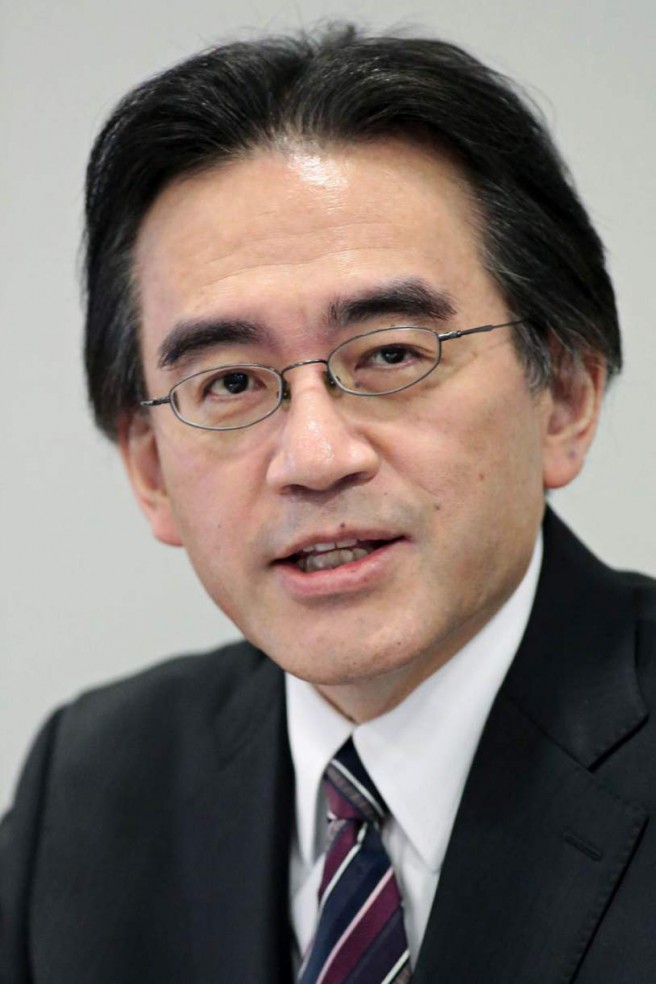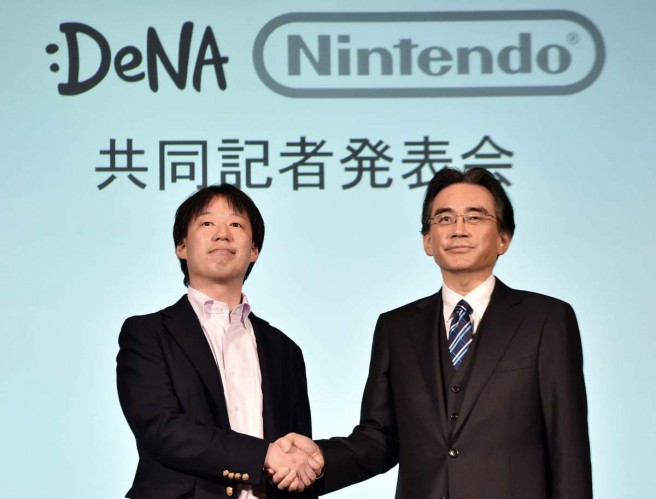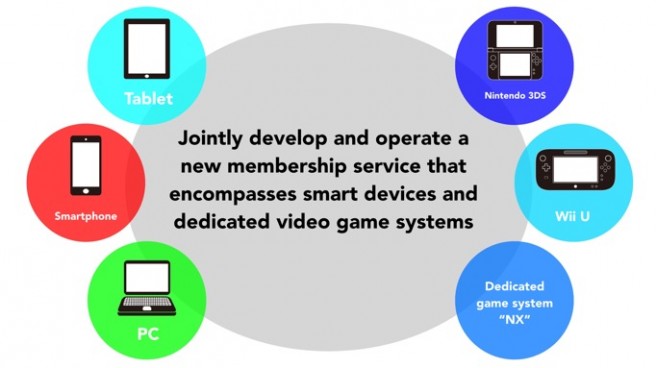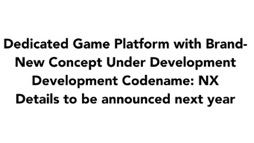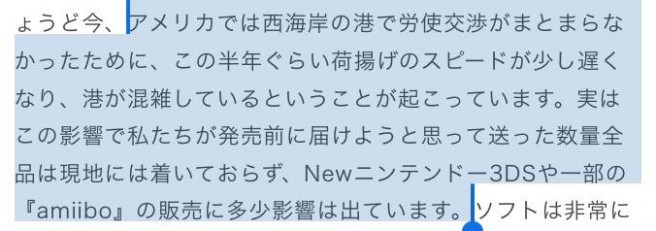Iwata/Reggie/Miyamoto: amiibo origins, more mobile talk, Wii U situation, future
Posted on 10 years ago by Brian(@NE_Brian) in General Nintendo, New Nintendo 3DS, News, Videos | 3 Comments
A second article from TIME covers several Nintendo-related topics in addition to mobile gaming. President Satoru Iwata, Nintendo of America CEO Reggie Fils-Aime, and Shigeru Miyamoto participated in the discussion. We’ve rounded up all of the tidbits and quotes below.
On amiibo…
– Iwata started sketching out the amiibo idea while on a bullet train in late 2013
– Iwata got more and more excited as he mulled the concept
– He dashed off a four-page pitch to his engineers
“It was something I believed would be completely new for us.”
Reggie and Iwata on how pursuing smart devices helps Nintendo…
“We view it as that marriage of the software with the hardware that together creates a compelling experience.” – Reggie
“If we don’t take an approach that looks holistically at the form a video-game platform should take in the future, then we’re not able to sustain Nintendo 10 years down the road. We would like to create several hit titles by effectively leveraging the appeal of Nintendo IP.” – Iwata
More: interview, Reggie Fils-Aime, Satoru Iwata, Shigeru Miyamoto, top
Iwata – decision to go mobile, Nintendo mainly developing, why NX was mentioned, lots more
Posted on 10 years ago by Brian(@NE_Brian) in General Nintendo, News, Switch | 80 Comments
TIME has gone up with a big interview featuring Nintendo president Satoru Iwata.
Some highlights include:
– Decided to try out mobile after finding solutions to Nintendo’s problems; not porting games from their systems, but instead making new software
– “for each title, we will discuss with DeNA and decide the most appropriate payment method”
– Not against Miyamoto getting involved with development, but he’s currently focusing on Wii U games for this year
– “Development of smart device games will be mainly done by Nintendo”
– Wanted to talk about NX so there wouldn’t be a misunderstanding that Nintendo isn’t as interested in dedicated games
– Iwata promises not to do anything that may hurt Nintendo IP
We’ve rounded up the full Q&A after the break. Be sure to check out TIME’s full piece here as well.
More: interview, Satoru Iwata, top
Iwata teases new membership service from DeNA
Posted on 10 years ago by Brian(@NE_Brian) in 3DS, General Nintendo, News, Switch, Wii U | 0 comments
Nintendo, together with DeNA, will jointly develop a new membership service which encompasses the existing Nintendo 3DS and Wii U systems, the new hardware system with a brand-new concept, NX, and smart devices and PCs, and Nintendo will be the primary party to operate this new membership service. Unlike the Club Nintendo membership service that Nintendo has been operating, the new membership service will include multiple devices and create a connection between Nintendo and each individual consumer regardless of the device the consumer uses. This membership will form one of the core elements of the new Nintendo platform that I just mentioned.
More: DeNA, Satoru Iwata, top
Iwata teases new Nintendo platform codenamed “NX”, news next year
Posted on 10 years ago by Brian(@NE_Brian) in General Nintendo, News, Switch | 67 Comments
While this is not something directly relating to the collaboration that we have announced today, here is one thing I would like to mention to avoid any misunderstandings.
Nintendo has decided to deploy its video game business on smart devices but it is not because we have lost passion or vision for the business of dedicated video game systems. On the contrary, now that we have decided how we will make use of smart devices, we have come to hold an even stronger passion and vision for the dedicated video game system business than ever before. Nintendo has made this decision because we have concluded that the approach of making use of smart devices is a rational way for us to encourage even more people around the world to recognize the great value of the wonderful game software available on our dedicated game systems.
As proof that Nintendo maintains strong enthusiasm for the dedicated game system business, let me confirm that Nintendo is currently developing a dedicated game platform with a brand-new concept under the development codename “NX.” It is too early to elaborate on the details of this project, but we hope to share more information with you next year.
More: Satoru Iwata, top
Iwata says all Nintendo IP will be considered for smart device software
Posted on 10 years ago by Brian(@NE_Brian) in General Nintendo, News | 0 comments
As for which Nintendo IP will be used, we do not intend to make any exceptions. Potentially, any Nintendo IP could be used in our smart device software. On the other hand, as I just said, games on smart devices require ever-evolving services rather than just being a finished product. A combined effort will be necessary to operate them. People’s attention would only be dispersed if we simply increased the number of the titles we simultaneously released, and we could not expect to expand our business. Accordingly, we will narrow down the titles for development and operation to some extent.
Please also note that, even if we use the same IP on our dedicated video game systems and smart devices, we will not port the titles for the former to the latter just as they are. There are significant differences in the controls, strengths and weaknesses between the controllers for dedicated game systems and the touchscreens of smart devices. We have no intention at all to port existing game titles for dedicated game platforms to smart devices because if we cannot provide our consumers with the best possible play experiences, it would just ruin the value of Nintendo’s IP.
And, if I can talk a bit further about our game development plan, we will continue doing our best to develop dedicated game titles for our dedicated game hardware platforms just as we have been doing. For smart devices, even in the case where we utilize the same IP, we will create completely new game software that will perfectly match the play styles of smart devices.As for the details of the game applications for smart devices, we will make the announcements on other occasions. I hope you will look forward to our future announcements.
More: Satoru Iwata, top
Iwata talks about Nintendo’s decision to pursue smart devices
Posted on 10 years ago by Brian(@NE_Brian) in General Nintendo, News | 1 Comment
Quite a few of you must be wondering why Nintendo, which has never deviated from its cautious stance in regard to the possibility of deploying its game business on smart devices, has now changed its policy.
Please note, however, that I was not dismissing the idea of making games for smart devices per se as I stated at the January 2014 Corporate Management Policy Briefing that a development team of Nintendo would create a smart device application, and please also note that I had not ruled out the possibility of making games when we make use of these devices.
On the other hand, I really had to thoroughly consider how we would be able to grow the business by maintaining and nurturing the value of Nintendo IP and what conditions would make that happen, because the value of content can easily be deflated in the digital world and, especially on smart devices, it is not easy to maintain content value since the lifespan tends to be very short as much content is released and then replaced so quickly. We are making these announcements today because we now have Nintendo’s answer to these questions.
More: Satoru Iwata, top
Iwata on Nintendo’s IP, why the company is targeting smart devices aggressively
Posted on 10 years ago by Brian(@NE_Brian) in General Nintendo, News | 0 comments
When we further analyze the situation, Nintendo’s strength lies in, or our consumers see the most value in and are willing to pay money for, Nintendo IP, such as our software and characters, and we have been creating and nurturing them together with the history of home video game entertainment.
In order to flexibly deal with the developments of the Internet and social media as well as the changes in the people’s lifestyles, we will start strategic endeavors so that Nintendo can maximize the value of our IP that we have used primarily for our own dedicated game platforms.
I announced Nintendo’s management policy of “more actively utilizing Nintendo IP” and “taking advantage of smart devices” in our Corporate Management Policy Briefing back in January 2014. The endeavors that I am explaining now are in line with these management policies.
More: Satoru Iwata, top
Satoru Iwata confirms port strike is reason for shipment woes in US
Posted on 10 years ago by Dennis Gagliardotto(@LyonHart_) in 3DS, General Nintendo, News | 18 Comments
A translation coming from Nintendo’s recent investor Q&A meeting shows the President of Nintendo, Satoru Iwata, admitting that the port strike on the west coast of America has had an impact on shipments regarding amiibo and the New Nintendo 3DS XL.
This would explain the amount of delays, shortages and vague dates we’ve been getting since amiibo first launched alongside Super Smash Bros. for Wii U back on November 21st, 2014, which is the only time there’s been a solid date on an amiibo release in the US. Video games, on the other hand, haven’t been impacted in this strike, as “games are light and can be flown to America”, Iwata says.
Let’s just hope this doesn’t go on for much longer so both the consumers and Nintendo can go about amiibo and any future products stress free.
The Q&A meeting is currently available in Japanese here
More: Amiibo, Meeting, Satoru Iwata
Iwata Asks series will continue in the future
Posted on 10 years ago by Brian(@NE_Brian) in General Nintendo, News | 0 comments
Nintendo’s Iwata Asks series was on hiatus for over a year. But out of nowhere, a new interview was published late last week to celebrate the launch of Zelda: Majora’s Mask 3D.
Thankfully, this won’t be a one-time thing. Satoru Iwata recently said on Nintendo’s Japanese Twitter account that the series will continue, even if it’s not at the same pace as before.
More: Iwata Asks, Satoru Iwata
Satoru Iwata’s thoughts on 2015 and the future, Wii U sales, and smartphones
Posted on 11 years ago by Kirara Koneko(@KiraraKoneko) in General Nintendo, News | 31 Comments
The following is a series of questions asked of Satoru Iwata in an interview with Nikkei:
Q: Nintendo in January downgraded its forecast group operating profit for fiscal 2014 to 20 billion yen ($165 million), half its original prediction. What is your latest outlook?
A: The improved 3DS (a hand-held game device with 3-D graphics) did not debut in the U.S. and Europe until after the start of the year, which meant demand did not increase as quickly as we expected. That does not mean that 3DS business itself has significantly declined.
The revised estimate already takes advertising factors including expenses for the new 3DS models into consideration. We do not expect our results to slide much further.
Q: Why have sales of the Wii U remained flat?
A: I believe the Wii U business still has considerable room for growth, as a number of software titles that are compatible with the console are slated for release in 2015.
The way Japanese gamers enjoy video games is different from their counterparts in the West. More and more Japanese gamers play on smartphones and 3DS hand-held devices. On the other hand, a majority of gamers in Europe and the U.S. still connect their consoles to TVs and play them on a bigger screen. In the global video game market, game titles for consoles are still dominant, and that market is much larger.
Q: What are you doing to shore up your console business?
A: Newer consoles are equipped with a function to process micropayments using Suica electronic money cards [in Japan]. Our service that allows people to purchase games online using those cards is popular.
It is also possible to turn smartphone games from other software makers into 3DS-compatible games and offer them for relatively low prices. We intend to pursue a variety of options. Only those products and services that receive strong support from customers will survive.
Q: The market for smartphone games continues to expand. What are your plans for this category?
A: In the past, I have opposed making smartphone and tablet versions of Nintendo titles. Prices for content aimed at smartphones and tablets are falling quickly. I am still wary of the category. We intend to develop products that will allow customers to identify with Nintendo products and make people pay attention to Nintendo games.
For example, some Nintendo game consoles incorporate Mii, which creates a digital avatar to represent players. It would be fun for players to use their Mii characters as icons on social media. We are currently developing an application that will allow users to do that. The app will be announced around the time our full-year results are released.
Q: What is Nintendo’s outlook for the next fiscal year and later?
A: We foresee improved performance for the next fiscal year, so long as we are not adversely affected by foreign exchange fluctuations. I have been saying we hope to achieve a profit suitable for Nintendo as early as fiscal 2016. My understanding is that an operating profit of 100 billion yen is the level the market and shareholders expect of us.
